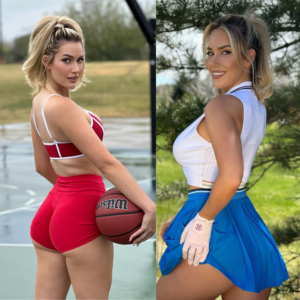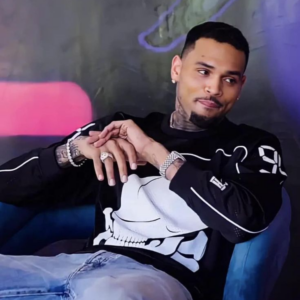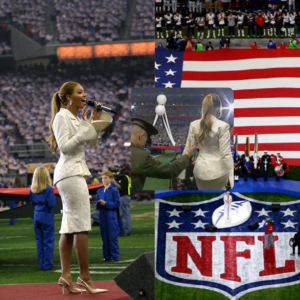Superstar Beyoncé called out country music. That’s huge.
With her new album, ‘Act II: Cowboy Carter,’ Beyoncé calls out the country music industry.
Andrea Williams is an opinion columnist for The Tennessean and curator of the Black Tennessee Voices initiative.
On March 19, Beyoncé took to Instagram to announce the 10-day countdown to the release of her highly anticipated country album, “Act II: Cowboy Carter.” In the announcement, she also revealed the personal reasons behind her full-length foray into country music.
“This album has been over five years in the making,” she wrote. “It was born out of an experience that I had years ago where I did not feel welcomed…and it was very clear that I wasn’t.”
It didn’t take long for the folks to connect the dots between Beyoncé’s statement and her 2016 appearance at the Country Music Association (CMA) Awards.
Alongside the Dixie Chicks, now known as The Chicks, Beyoncé ripped through a hard-stomping rendition of “Lemonade”’s “Daddy Lessons” that was equal parts funky and folksy.

But the story — the one that exploded across the internet and captured the attention of people far outside of Nashville — was less about the performance itself and more about the country music industry’s reaction to it.
From the archives:CMA disputes Beyonce social media controversy
Beyoncé’s 2016 CMA performance generates backlash from country music industry
There was plenty of evidence to support the notion that Beyoncé’s appearance was less-than-welcome at country music’s premier celebration. ABC’s cameras scanned the audience throughout the national broadcast, and while some artists seemed to be enjoying Beyoncé’s performance, others stared on with blank faces.

The day after the show, Travis Tritt, one of the most successful country artists of the 90s, took to Twitter and asserted that “[w]e can stand on our own and don’t need pop artists on our awards shows.” He later backtracked a bit, stating that his complaint wasn’t Beyoncé-specific and that he’d long bemoaned sharing country stages with non-country artists. But his question, “I want to know when the BET or SoulTrain awards are gonna ask a country artist to perform on their awards show?” seemed particularly pointed.
Finally, there was the speculation that veteran country artist Alan Jackson walked out while Beyoncé was on stage, so upset was he by her audacity to infringe upon country music’s hallowed grounds. The speculation was confirmed by Chris Willman, a current senior music writer at Variety who was then writing for Billboard and spoke to an unnamed Nashville manager about the Beyoncé-Chicks collaboration.

“I think it was a flat performance overall and a lot of industry people I have talked with were not impressed for a variety of reasons,” the manager said. “The overall show was great, but in my opinion that seemed out of place and felt forced…I was sitting behind Alan Jackson, and he actually stood up from the front row and walked out in [the] middle of the performance, so I think that spoke volumes for the traditional, real country acts.”
What was unknown, however, was how Beyoncé may have been impacted by the backlash, both what was known to the public, as well as what may have happened behind the scenes. But now, thanks to an Instagram post and a direct reference to “criticisms” and “limitations,” the whole world — country music industry included — knows exactly how Beyoncé felt when she traveled to Nashville in November 2016.
Like other spaces that cultivate cultures of exclusion, country music thrives in silence. Where there is no accountability, the status quo persists. Meanwhile, allegations from outside the industry are easily rejected as uninformed and inaccurate:
Country music isn’t racist. Black people just don’t like it — they have R&B and rap — so that’s why you don’t see many of them in the industry.
And a favorite: How can country music be racist when we gave you Charley Pride?

The Charley Pride reference is particularly telling, and not just because it’s predictable to point to the most successful Black artist in country music history while ignoring the fact that his commercial peak occurred nearly 50 years ago. Critically, Charley Pride conducted his whole country music career under the cloak of silence, never publicly pushing back against the system that embraced him — albeit at arm’s length.
Pride said nothing when Willie Nelson dubbed him “Super(n-word)” and George Jones spray-painted KKK on his car, dismissing both as jokes from friends. Neither did he make public comment when the Academy of Country Music (widely considered the more inclusive counterpart to the CMA) didn’t award him a single trophy during his run of 29 No. 1 singles.
This silence, while counterproductive on a systemic level, is nonetheless understandable. Charley Pride had been allowed to succeed in Nashville; at any point, the grantors of his good fortune could have revoked it.
More than a decade later, the same year Beyoncé appeared on the CMA stage, Pride explained his avoidance of difficult conversations. In an interview with the Dallas Observer, Pride said, “I’m not a coward or anything like that, but I think that with the help of my dad and mom, I just learned to find a way around the negative stuff.” Notably, that interview took place 50 years after Pride’s debut, the headline — “Will Darius Rucker Break Country Music’s Color Barrier Once and For All?” — a stark reminder that no amount of Pride’s pacification could have created a more inclusive industry.
Charley Pride kept silent about his pain, but other Black artists haven’t
While the inclination to “find a way around the negative stuff” is still commonplace in country music, regardless of race, some Black creatives have been more open about their experiences in country music. This was particularly evident after the summer of 2020, when protests for racial equality erupted across the nation and country music industry faced its own reckoning. Even the previously silent Rucker went on record, detailing his personal need to denounce racism, acknowledging the danger in doing so as a Black country artist, and noting that it was no longer okay to “stay on the sidelines.”
These revelations were often met with vitriol. Mickey Guyton, for example, was repeatedly told to leave country music if she thought it was so bad. So perhaps because of this—or the accusations that Guyton was merely an opportunist, using racial unrest to build her career—other Black creatives, particularly those less accomplished, chose Pride’s path of silence.
But we know that for every known slight to Black creatives in country music — the lack of Black writers signed to publishing deals, the dismal spins for Black women at country radio — there are hundreds more unknown: the Black touring musician promoted to musical director, then told he can’t hire any other Black musicians; the Black artist told by a major label A&R that “there’s nothing we can do for you,” only to see that same A&R reinvent herself as a diversity advocate years later.
It matters, then, that Beyoncé spoke up, that she called out the industry that still has considerable work to do in its efforts to be truly inclusive. Because while there are still no certainties about the long-term industry impact of Beyoncé’s country turn, we know one thing for sure: There were Black creatives in country music before Beyoncé, and they will remain long after she’s gone.
In speaking out, Beyoncé represents but one voice. But her voice is louder than most, its ability to cut through the industry’s vacuum of accountability far more pronounced. If nothing else, though — if country music continues to maintain the barriers preventing Black creatives from building sustainable careers — Zora Neale Hurston’s words remain true:
“If you’re silent about your pain, they’ll kill you and say you enjoyed it.”
News
Paige Spiranac, a former professional golfer turned influencer, has found immense success in her career as a social media influencer, model, and media personality. With 3.9 million Instagram followers and 1.5 million on TikTok, she has become a prominent figure in the online world.
Paige Spiranac flattered to inspire others, including copycats, in Social Media success In a recent interview with The U.S. Sun at The SI Invitational, Spiranac expressed her…
Golf influencer Paige Spiranac knows exactly what some people think of her, and she had the perfect response ready for those critics.
Paige Spiranac posts brilliant response to sexist critics who think she does not know how to golf She played dumb in order to prove her point The Instagram…
PAIGE SPIRANAC delighted fans with her latest social media post.
The golf influencer loves to upload snaps of herself from various courses around the world. 28 Paige Spiranac posed in a figure-hugging black dressCredit: https://twitter.com/PaigeSpiranac 28 Fans love…
Paige Spiranac fans left distracted as she teases curves in busty outfit
Instagram influencer and golfer Paige Spiranac gave her fans an eyeful in her latest post. Paige Spiranac shares golf tutorial Fans of golf star and social media…
Crowned The King Of R&B, Chris Brown Has Amassed A 2024 Net Worth Of $50 Million
Chris Brown is an iconic and well-known singer, songwriter, actor and world-class dancer. Working since he was 16, Brown has continued to thrive within the entertainment industry and…
NFL fired Beyoncé after just 2 minutes on stage for singing ‘Alternative National Anthem’ at NFL.
In a world where celebrities often tread lightly around political and social issues, global superstar Beyoncé has never been one to shy away from making a statement….
End of content
No more pages to load











